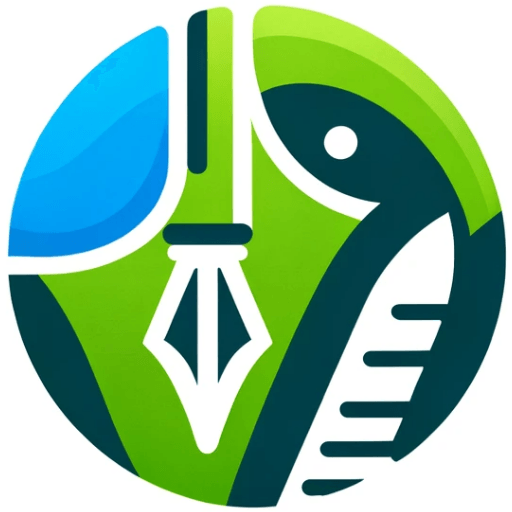How Do You Effectively Research Writing Projects?
Ever wondered how writing professionals consistently hit the mark with their research? In this article, discover the first key insight on using expert interview cascades and the final tip on iterating research throughout writing. With seven invaluable insights in total, this Q&A-style post promises to elevate your research game. Dive in and transform your approach to writing projects with practical expert advice.
- Use Expert Interview Cascade
- Balance Research and Writing
- Start with a Clear Question
- Utilize Varied Reliable Sources
- Organize with Note-Taking Tools
- Analyze and Synthesize Information
- Iterate Research Throughout Writing
Use Expert Interview Cascade
As someone who's had to dive deep into various industries for my consulting work at Spectup, I've found that one of the most effective research methods is what I call the "expert interview cascade." It's a technique I developed during my time at Deloitte and honed further at Spectup.
The process starts by identifying and interviewing a key expert in the field you're researching. During this initial interview, I always make sure to ask who else they'd recommend I speak to. This usually leads to a cascade of introductions to other experts, each offering their unique perspective on the topic.
I remember using this method when we were helping a fintech startup at Spectup. We started by talking to a former bank executive, who then connected us with a regulatory expert, who in turn introduced us to a blockchain specialist. Each conversation built upon the last, giving us a comprehensive understanding of the industry landscape.
This approach not only provides in-depth knowledge but also helps in building a network within the industry. It's particularly useful when you're writing about complex or rapidly-evolving fields. The key is to approach each interview with genuine curiosity and always be ready to follow unexpected leads.
At Spectup, we've found that this method often uncovers insights that aren't readily available through traditional desk research, giving our clients a real edge in their market understanding and storytelling.

Balance Research and Writing
Know that it's impossible to read everything. Whether you're exploring ideas for a character in your novel or conducting an in-depth literature review for an academic project, sometimes it's good to know when to steel yourself and finally pick up the pen. Rigorous research is important, but don't be afraid of the blank page either. As American writer Don DeLillo says, 'Writing is a form of thinking.' In other words, by setting down ideas you can acquire a clearer sense of the underlying questions and motivations that have been shaping your project all along, making both writing and research more effective in the long run.

Start with a Clear Question
A strong starting point for researching writing projects is to begin with a clear and focused research question. This helps in setting the scope and limits of the research. A targeted question can guide the research process, making it easier to find relevant information. Without a defined question, research efforts can become scattered and ineffective.
Setting a clear goal for the research helps in maintaining direction. Consider refining your research question to enhance focus and clarity. Start by crafting a question that precisely captures what you seek to discover.
Utilize Varied Reliable Sources
Utilizing a variety of reliable sources is key to thoroughly researching writing projects. This approach ensures a well-rounded perspective, covering different angles of the topic. Combining information from books, scholarly articles, reputable websites, and other sources can enrich the quality of the research. Relying on just one type of source might result in biased or incomplete information.
Cross-referencing multiple sources adds depth and credibility to the research. Take the time to diversify your sources for more comprehensive insights. Seek out different mediums to deepen your understanding of the subject.
Organize with Note-Taking Tools
Effective research for writing projects can be greatly aided by the use of note-taking tools. These tools help to keep the information organized and easily accessible when needed. Methods like digital apps, notebooks, or index cards can prove beneficial in sorting out major points and details. This organization aids in identifying key themes and gaps in the research.
When information is systematically arranged, it becomes easier to integrate into the writing source material. Adopt a reliable note-taking method that suits your research style. Begin organizing your findings early to streamline your writing process.
Analyze and Synthesize Information
Critically analyzing and synthesizing the gathered information is crucial for effective research. This involves evaluating the credibility of sources, identifying biases, and comparing different perspectives. Synthesizing information means combining insights from various sources into a cohesive understanding. It moves beyond simply collecting facts to interpreting their significance.
Through analysis, research becomes more than just an accumulation of data; it transforms into meaningful narratives and informed opinions. Enhance your research by critically engaging with the material. Aim to interpret and weave together diverse perspectives for a nuanced view of the subject.
Iterate Research Throughout Writing
Iterating on research throughout the writing process ensures that the research remains relevant and robust. This iterative approach means continually refining and updating the research as new insights are gained or if the focus shifts. It allows for incorporating recent developments and adjusting for new perspectives. Research is not a one-time task but an ongoing process that evolves with the writing.
This adaptability leads to richer content and shows a deeper engagement with the topic. Make research a dynamic part of your writing journey. Be prepared to revisit and revise your research to keep it fresh and impactful.

